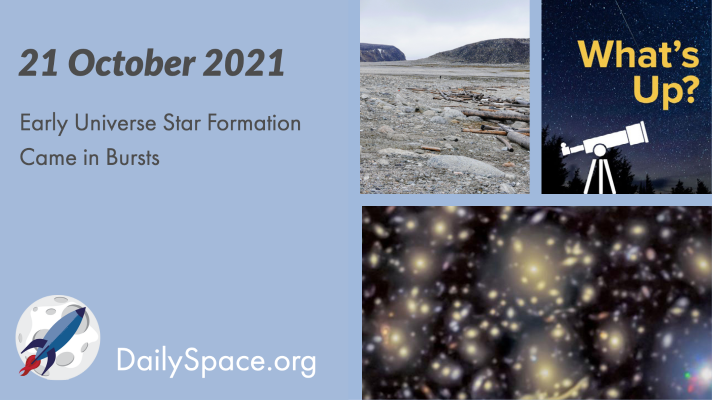
Oct 22, 2021 | Climate Change, Daily Space, Earth, Galaxies, Globular Cluster, Mars, Moon, Science, Sky Watching
Researchers looked at lensed galaxy systems, searched for nearby analogs to those distant systems, and found that in general, the systems showed signs of bingeing star formation and then quiet lulls. Plus, using tree rings to track Arctic ice changes, and this week’s What’s Up.
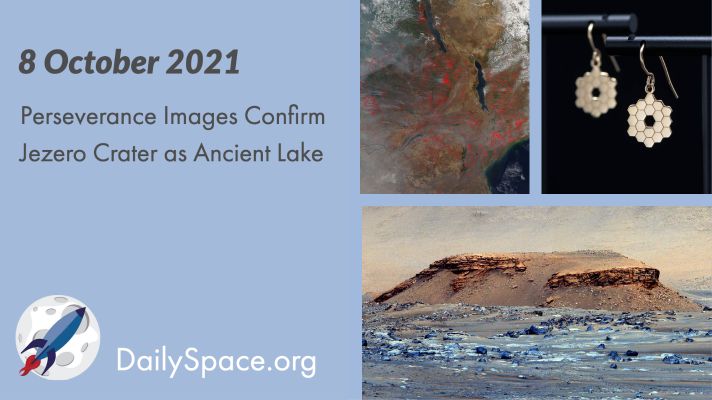
Oct 12, 2021 | Asteroids, Climate Change, Daily Space, Earth, Galaxies, JWST, Lucy, Mars, Perseverance, Review
A newly completed analysis of Perseverance’s first images from Mars finds that the landing site, Jezero Crater, was really a lake that was fed by a river, with sedimentary layers, flash floods, and strewn boulders. Plus, Central African biomass burning, Arctic permafrost melting, and we look at jewelry that celebrates upcoming missions.
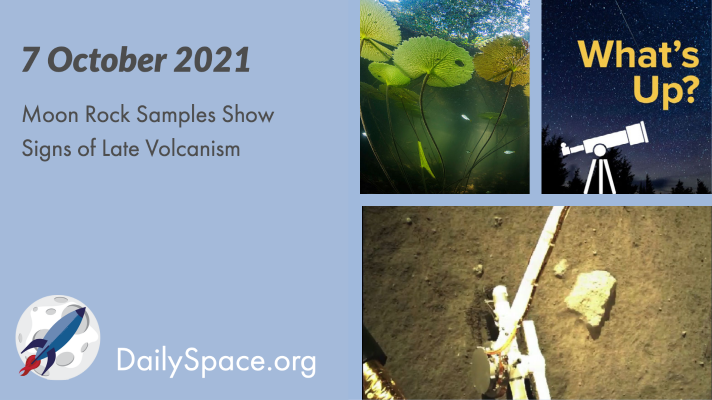
Oct 8, 2021 | Active Galaxies, Climate Change, Comets, Daily Space, Earth, Mercury, Moon, Sky Watching, Spacecraft, Stars
An analysis of the most recent sample taken from the Moon and returned by the Chang’e-5 mission shows that the basaltic rock is about two billion years old. This age implies a previously unknown heat source in the region. Plus, how plants and animals record climate change and this week’s What’s Up.
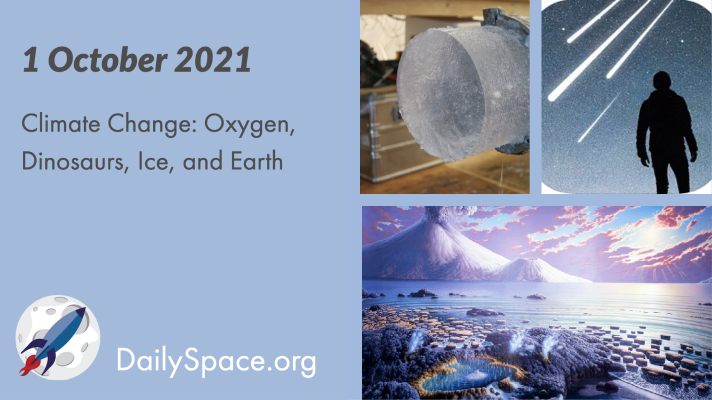
Oct 4, 2021 | Climate Change, Daily Space, Earth, Exoplanets, Mars, Our Solar System, Review, Starlink
From the Great Oxidation Event to how Earth is dimming, we look at a selection of stories about how climate changes have affected the Earth in the distant past, the recent past, and the current time. Plus, we review an app called MeteorActive.
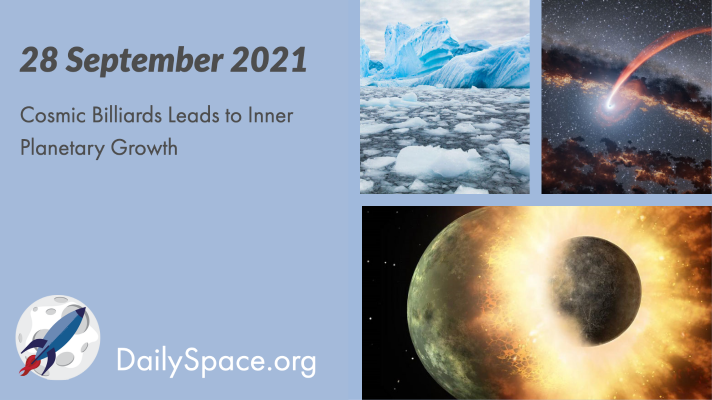
Sep 29, 2021 | Black Holes (Stellar), Climate Change, Daily Space, Earth, Mars, Mercury, Moon, Our Solar System, Stars, Venus
The inner solar system was a wild and wooly place as the planets were forming, and new research shows that the collisions that formed Earth and Venus were likely of the hit-and-run variety. Plus, polar ice loss warps the planet, and a black hole eats a star.
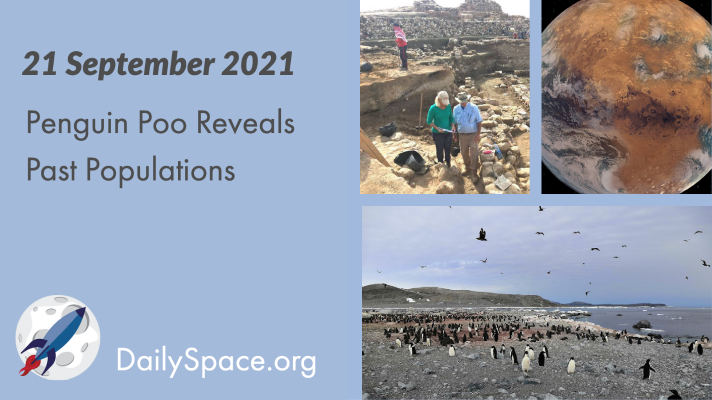
Sep 22, 2021 | Asteroids, Climate Change, Daily Space, Earth, Mars
A study of the feces of Adélie penguins from Inexpressible Island on the Ross Sea of the Antarctic sheds new light on how the avian population may survive during climate change. Plus, the possibility for life on Mars and understanding destructive meteors.








 We record most shows live, on Twitch. Follow us today to get alerts when we go live.
We record most shows live, on Twitch. Follow us today to get alerts when we go live.